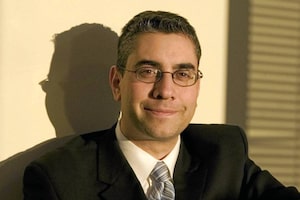One thing that you may have noticed is that it is tough to predict the market in the short term.
What isn't tough to predict is taxes. They are pretty consistent. Sure there are changes to tax tables and new opportunities like the Tax Free Savings Account, but to a large degree, they are constant.
Tax management is how your financial planner brings value to the table - it's often more important than investment management.
So here is a question: How often does your investment adviser talk about taxes other than when it comes to saying "RSP contributions are a good thing"? In my opinion, for many client situations, it should be a constant part of the conversation.
|
More from Ted Rechtshaffen |
For some reason, with many investment advisers, it rarely comes up. My guess is that many advisers just don't have great tax expertise or have been dissuaded by the firm's compliance department from even talking about it. Either way, it is a subject of which you should be fully apprised.
Here are five situations in which taxes are key to your financial well-being. If you aren't having at least some of these discussions, then your adviser may not be bringing enough value to your relationship.
1)Should you be making an RSP contribution at all?
Given that you get a refund based on your current marginal tax rate, and you will pay taxes on all RSP/RIF withdrawals in the year you withdraw them, is this a neutral or positive year to make a contribution? Maybe your income is so low this year that an RSP contribution just doesn't make sense.
2)On non-registered investments, is your portfolio structured to be most tax efficient?
If you have $60,000 in taxable income, and you invest in an RBC corporate bond paying interest, you will pay more than 30 per cent in tax on that interest. If, instead, you invest in an RBC preferred share, you would pay less than 10-per-cent tax on the dividend from that share. These investments aren't exactly apples to apples, but close enough that the tax discussion is key.
3)Where do you stand on capital gains?
If you have non-registered investment assets, you will have holdings that are either in a loss position, neutral or gain position. In addition, you may personally have unused capital losses that you can carry forward, or even capital gains from the past three years that can be carried back. When decisions are made to sell any of these investments, you want to be aware of the effect it will have - as it could either create a new tax bill, cost no tax, or even help to create a tax refund.
4)If you need cash flow from investments, what is the most tax-efficient way to get it?
Cash can come from a variety of places. You could draw from non-registered assets, RSPs, RIFs, Tax Free Savings Accounts, borrow from a line of credit, borrow from a relative, you can sell assets, possibly even draw cash from an insurance policy. Sometimes drawing from the most tax-efficient place for this year (anywhere other than registered accounts) can lead to much higher lifetime tax bills over the long term. It is important to understand both the short-term and long-term tax implications to these cash flow decisions. While not technically a tax, the Old Age Security clawback should be factored in as well.
5)Have you discussed spousal loans, pension splitting, gifting of shares, gifting to family?
Needless to say, everyone is in a different position, and many of these issues may not affect you. However, if you are receiving a pension, if you have one spouse earning significantly more than the other (and have meaningful non-registered assets), are inclined to give more than $2,500 to charities, or think you will have a sizable estate, one or more of the areas above may represent a tax-planning opportunity for you.
When it comes to being tax smart, it isn't good enough to rely on an accountant who focuses on completing a tax return. By that point, the die is mostly cast. It is the smart decisions you make around your investments, cash flow and income splitting that will minimize your taxes in the long run.
Make sure your financial planner can support your tax-planning needs to help you achieve your goals and returns.
Ted Rechtshaffen is president and CEO of TriDelta Financial Partners, a firm that provides independent financial planning advice. He was vice-president of business strategy at a major Canadian brokerage firm and found that the interests of the client were often not aligned with the interests of the adviser or the interests of the company.
This is part nine in a series that looks inside the financial services industry at what advisers tell their clients and - more importantly - what they don't.
|
Other articles in Ted Rechtshaffen's Adviser Secrets series:
|
 Ted Rechtshaffen
Ted Rechtshaffen